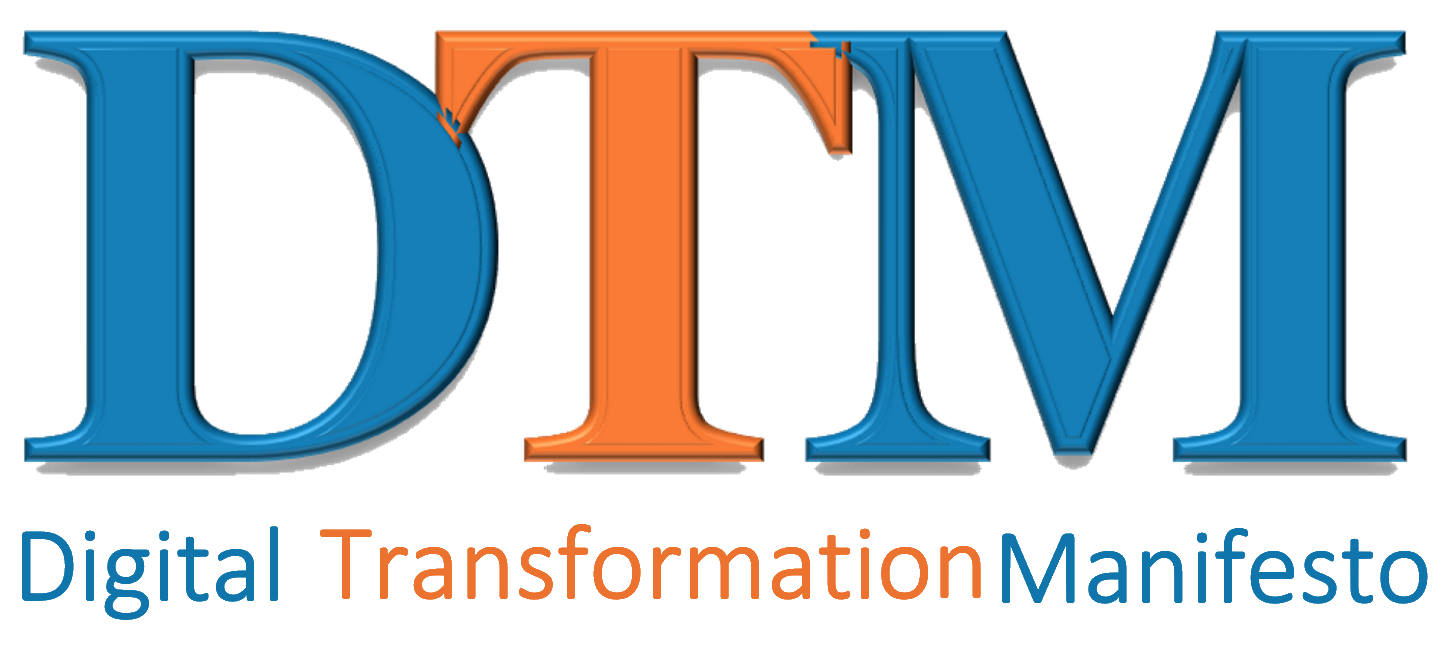This is the first of 8 articles describing the tenets of the Digital Transformation Manifesto.
Digital transformation is a journey. While there are many paths to success, there are also many paths to failure. In our experience, success is not dependent upon the particular digital technology, rather it is based upon organizational culture and characteristics. People often focus on the term “digital” in digital transformation, but that is just the adjective. Digital is the enabler, but it is not the goal. The true organizational impact is the transformation. Transformation of a business, an industry, even our society is the ultimate outcome from digital transformation. For this reason, the Institute for Digital Transformation has developed a Digital Transformation Manifesto. The Manifesto articulates the eight core tenets of successful digital transformation.
The first tenet of the Digital Transformation Manifesto is, “We proactively embrace change.” There is a familiar paradox, “the only thing that is constant is change.” The paradox is a reality with digital transformation. Digital transformation is fundamentally changing the products, processes, systems, industries and the environment of society and culture through the application of digital technologies, often in new and unique ways. And that brings us back to our paradox, the only thing that is constant is change.
One of the goals or metrics for an industrial-age organization was to find the sweet spot of performance and maintain that level. Whether it was product performance, customer service delivery, manufacturing process quality, or system uptime, find the optimum level and keep it there. That has become obsolete with digital transformation.
The sweet spot of performance is looking backward at the required performance for the past, not forward. It assumes that what was required in the past will continue to be the expectation for the future. However, when you embrace digital transformation, you are embracing proactive change. As agents of digital transformation, we seek out changes enabled by digital technology. From those changes we create new business models and new systems. We then leverage their continuous improvement for our customers, our employees, our organizations, and society.
Let’s consider an illustration. The first commercially successful smartphone, the iPhone, was released in January 2007. The technology was transformative. Today, when we look globally, there are over 3 billion users of a smartphones – both iPhones and Androids. The average American is checking their smartphone every 12 minutes. But here is the transformative change. Even though it is a smart phone, people are seldom using it for phone calls. Only 12% of the usage of the smartphone if for telephone calls. The primary use of a smartphone is as an operating system for apps. There are now literally millions of apps available on both iPhones and Android phones. Apps have changed how we interact with people and organizations, how we buy products and services, and even our forms of entertainment. Yet the entire app industry is only a few years old, and I doubt that Steve Jobs and Apple envisioned what it has become when they launched the iPhone.
And who know what is next? Is it wearables clothing with sensors and controls? Is it autonomous devices – planes, trains and automobiles? Is it integrating augmented reality with real world interactions? Or is it some new technology still being created? The point is continuous change is now inevitable. The requirements of the past are obsolete. The agents of digital transformation are embracing, leveraging, and amplifying that change – not trying to maintain the status quo. It really is true, the only thing that is constant is change.
Proactively embracing change is a tenet of the Digital Transformation Manifesto. However, it is only one of eight fundamental tenets. This tenet is a mindset change for many organizations and leaders.
In my next article, we will be exploring The Need to Pivot Quickly.![]()
Tag/s:Business TransformationDigital EnterpriseDigital EraManifestoOrganizational Change





Trackbacks/Pingbacks